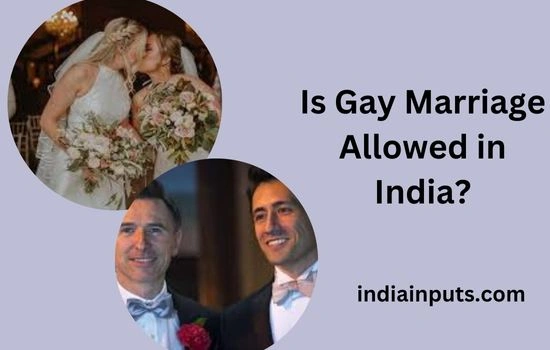India, with its diverse culture and evolving societal norms, has made significant strides in LGBTQ+ rights over the past few years. However, the question of whether gay marriage is allowed in India continues to be a subject of legal and social debate. While the country has taken progressive steps toward inclusivity, same-sex marriage remains a contentious issue.
The Legal Status of Gay Marriage in India

Currently, gay marriage is not legally recognized in India. While the landmark Navtej Singh Johar v. Union of India judgment in 2018 decriminalized homosexuality by striking down Section 377 of the Indian Penal Code, it did not extend to legalizing same-sex marriage.
The judgment was a historic step for LGBTQ+ rights in India, affirming the dignity and equality of same-sex relationships. However, it stopped short of granting these couples the same legal rights and recognition as heterosexual marriages.
In 2023, petitions seeking legal recognition of same-sex marriages were presented before the Supreme Court of India. Advocates argued that denying marriage rights to same-sex couples violates constitutional principles of equality and non-discrimination. However, the court deferred the matter to Parliament, highlighting the need for legislative intervention to address the complexities of the issue.
Why Legal Recognition Matters
Legalizing gay marriage is not just about social acceptance; it carries significant legal and economic implications. Without recognition, same-sex couples in India are denied basic rights enjoyed by married heterosexual couples, such as:
- Inheritance and Property Rights: Same-sex partners cannot inherit property or assets in the absence of legal marriage.
- Adoption Rights: Current adoption laws do not allow same-sex couples to adopt children jointly.
- Healthcare and Insurance: Partners are not entitled to spousal benefits like health insurance or hospital decision-making rights.
- Tax Benefits: Married couples receive tax exemptions and benefits that same-sex couples cannot access.
The Social Debate: Tradition vs. Progress
In a country deeply rooted in tradition, the idea of same-sex marriage often faces resistance. Critics argue that marriage is a sacred institution between a man and a woman, as per religious and cultural norms. This belief is prevalent across various communities and has made it challenging to foster acceptance of same-sex unions.
On the other hand, activists and allies emphasize that societal progress hinges on recognizing the rights of all individuals, regardless of sexual orientation. They argue that love and commitment should not be bound by gender or sexual identity and that denying these rights perpetuates inequality and stigma.
Global Perspective
India’s hesitancy to legalize gay marriage contrasts sharply with the global trend. Over 30 countries, including the United States, Canada, and several European nations, have legalized same-sex marriage. Even neighboring Nepal recognizes same-sex unions, setting an example for inclusivity in South Asia.
The Road Ahead
While the legal recognition of gay marriage in India remains uncertain, the LGBTQ+ community continues to advocate for equality. Public opinion, particularly among the younger generation, is shifting toward acceptance and inclusivity, thanks to increased awareness and representation in media and popular culture.
Legalizing same-sex marriage would not only affirm the fundamental rights of LGBTQ+ individuals but also signal India’s commitment to equality and human dignity on the global stage. For now, however, same-sex couples in India must navigate a system that acknowledges their existence but stops short of granting them full equality.
Conclusion
No, gay marriage is not yet allowed in India, but the demand for its recognition is growing louder. As society and lawmakers grapple with the question, the hope remains that love, in all its forms, will eventually be celebrated and respected, both legally and socially, in the world’s largest democracy.

